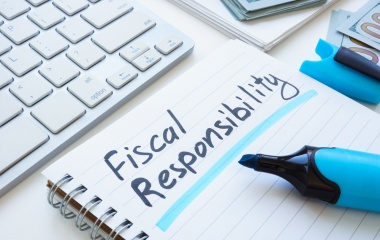
Despite pockets of great wealth many Jews continue to live below the poverty line, and middle class Jews are being priced out of a Jewish education. Hence the unparalleled interest in the upcoming provincial election in which the issue of faith based funding for non-Catholics has become the major issue in the campaign. The fact that such is so is truly a remarkable testament to how integrated and comfortable Jews feel in this wonderful land. Can one imagine a Jewish community in Eastern Europe or anywhere else for that matter, potentially receiving tens of millions of dollars a year to fund Jewish education?
That the “secular” society in which we live may actually fund the teaching of Torah brings to mind the comment of Rav Moshe Feinstein zt”l the pre-eminent authority on Jewish law in the post war years. America (he lived in New York), he pointed out, has the status of a malchut shel chesed, a country of kindness. Such feelings were common amongst those who lived in societies where the freedoms we take for granted were no more than a pipe dream, and help explain his shock and disbelief when told of so called “religious” Jews who wanted to justify cheating on their taxes. It may also help explain his ruling that one may enter a church (though not the actual sanctuary) in order to vote in an election. While this ruling might seem unnecessary to the “modern” Jew living in a multi-cultural society it is absolutely astonishing coming from the pen of those to whom a pogrom initiated by religious leaders was a daily threat.
It is of interest to note that while Jewish law obligates Jews to support the non-Jewish poor, historically Jews were very wary of accepting tzedakah from non Jews. This was considered a Chilul Hashem, a desecration of the name of G-d, indicating that we would not or could not take care of our own.
Of course living in a democracy greatly impacts on our relationship to the society around us. In pre-modern societies (and unfortunately in many places even today) the county was “owned” by those running it. They could and would expel any and all on a whim and often usurped the wealth of others for their own personal gains. Surely the idea of a dictator/monarch paying taxes is preposterous, being as they were above the law, which they themselves often created.
Democracies on the other hand are akin to a (very ) large partnership in which each partner is called to contribute capital (taxes) so that the partnership can grow and pay dividends (services) to its members. Those appointed to actually run the business (elected politicians) have a fiduciary duty to do so for the benefit of the shareholders (citizens). Under such a system those who shirk their responsibility are not just stealing from government authorities (bad enough as that is) but are literally stealing from their neighbours.
In such an environment all partners (residents) are equally entitled to equal treatment. Asking members of certain faiths to fund the education of one faith while denying these faith members equal treatment strikes at the core values of a democracy.
Whatever happens on October 10th (the date of the Ontario election in which the issue of funding faith based schools is the key election issue) and beyond ultimately the responsibility to ensure universal free Jewish education will continue to rest with our community. If despite the inherent unfairness, inclusive public education does not become government policy we must redouble our efforts to raise funds that will generate enough income to fund our schools. The task may be difficult but the future shape of our community will reflect how successful we are at making Jewish education affordable for all.



